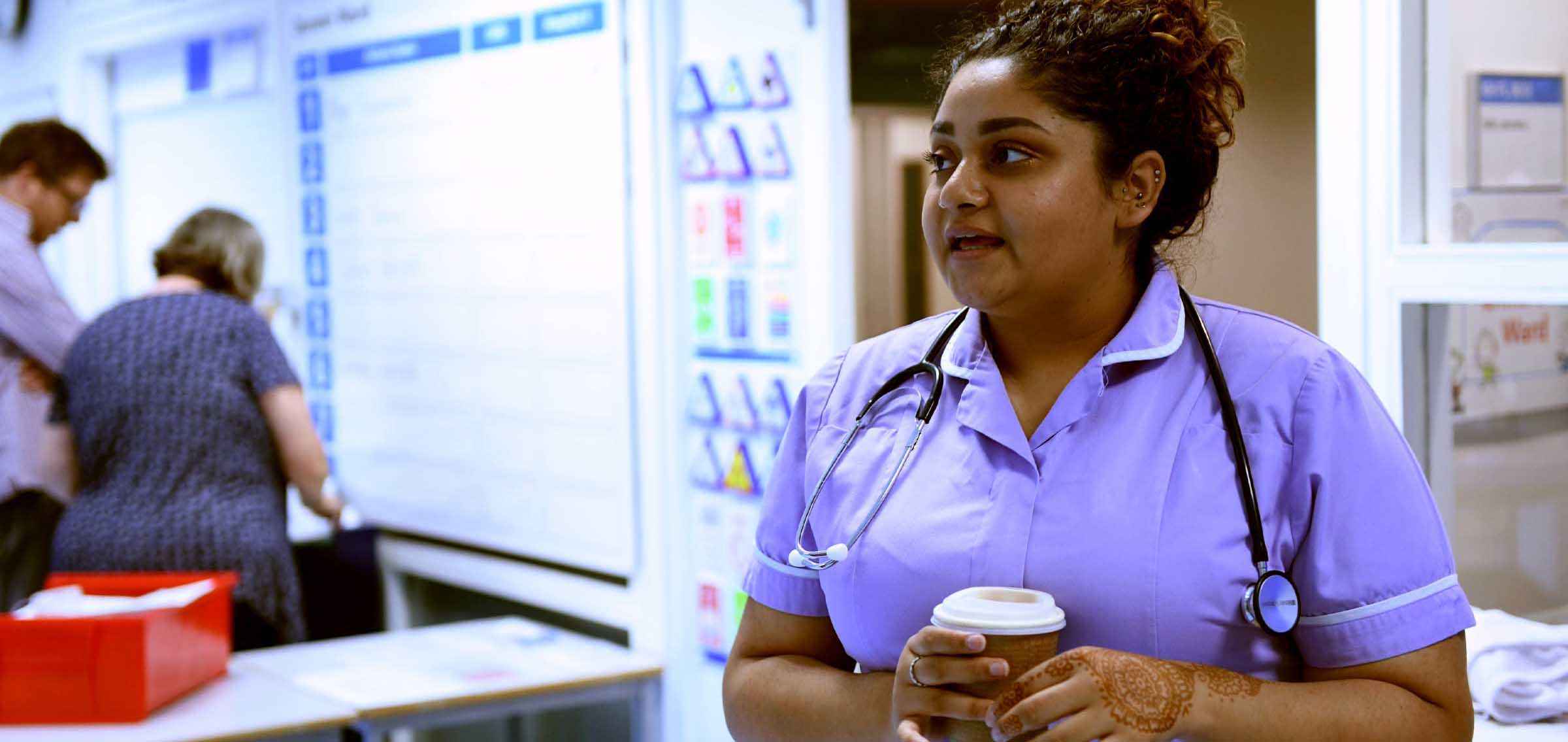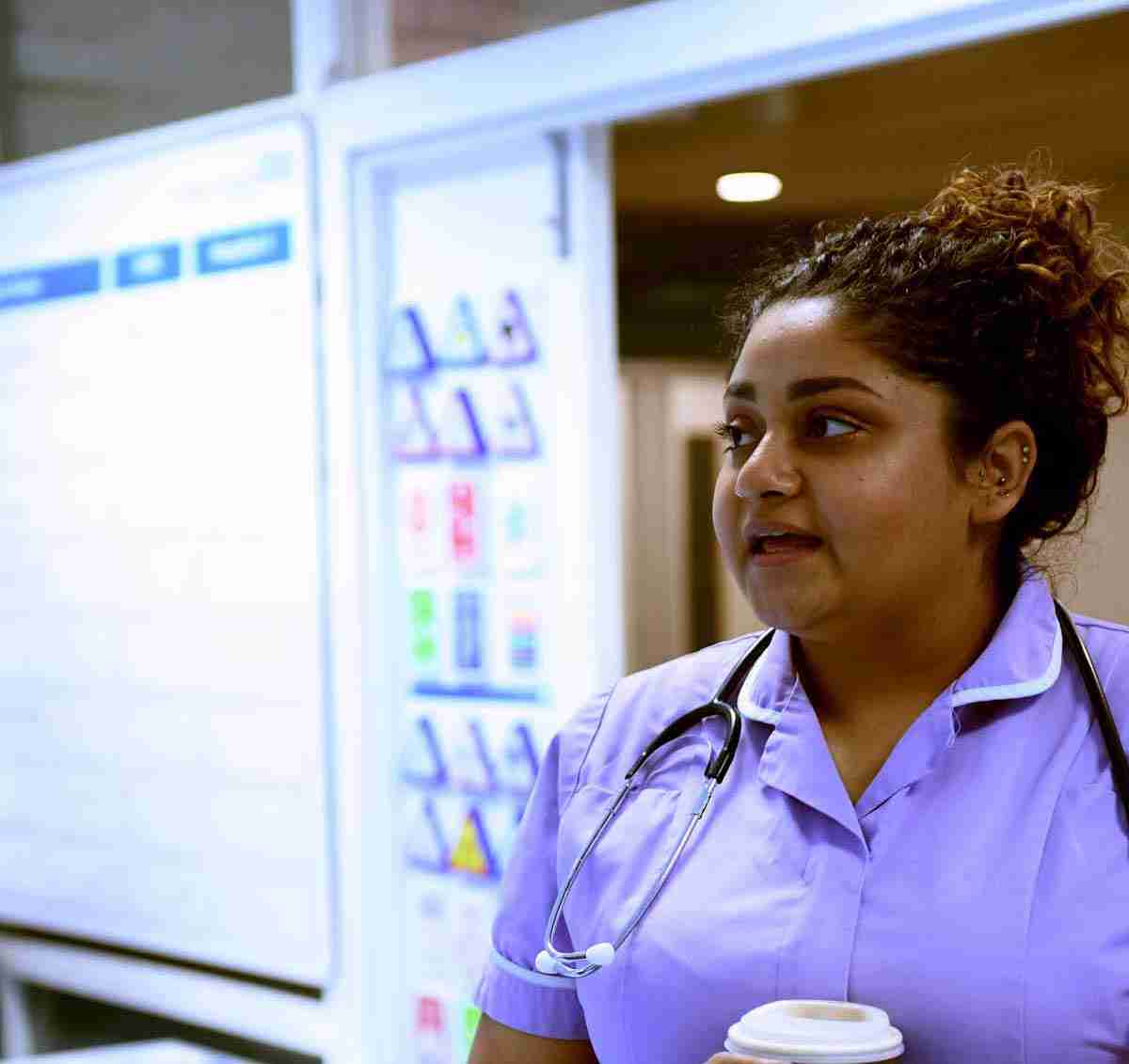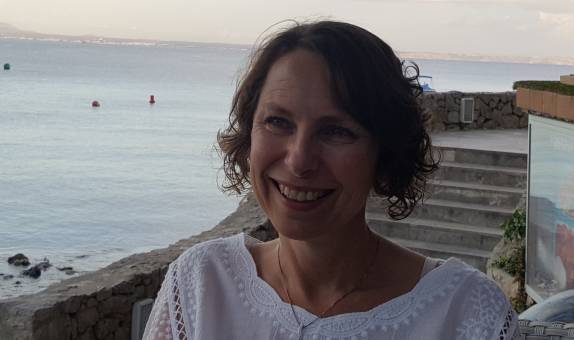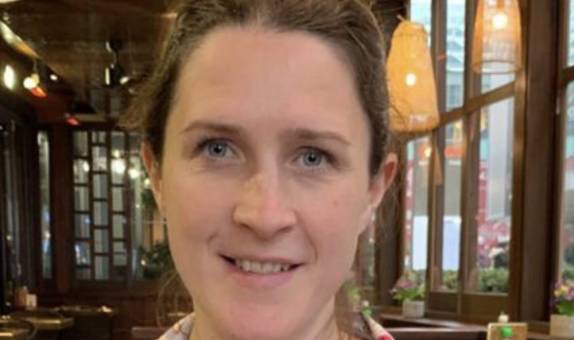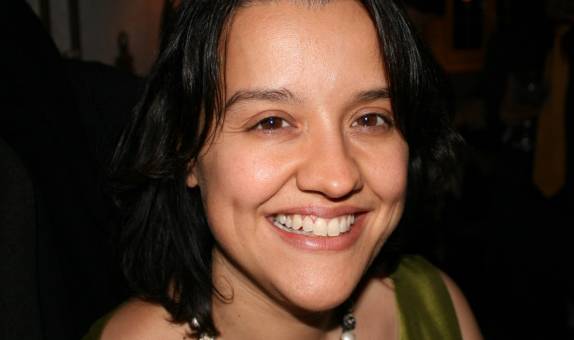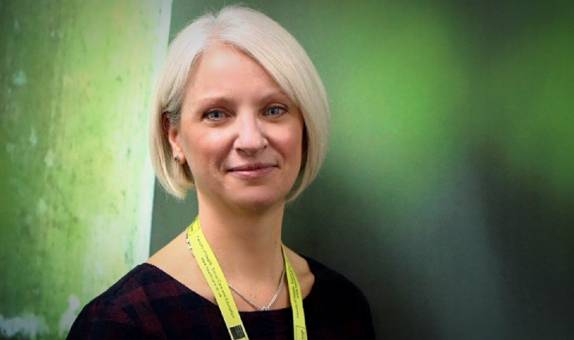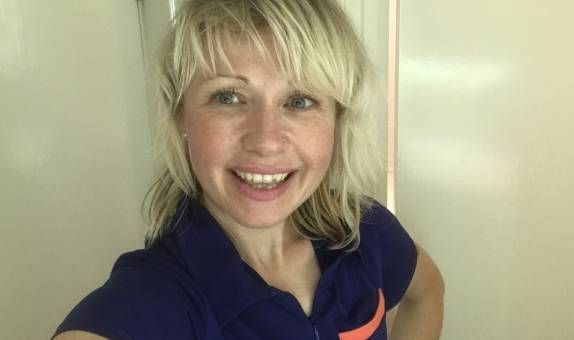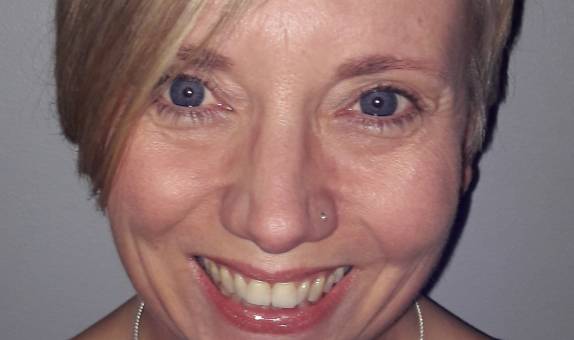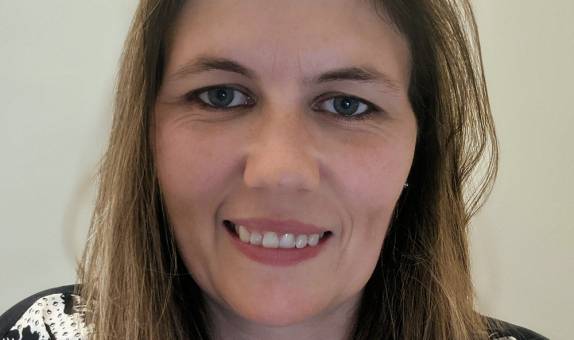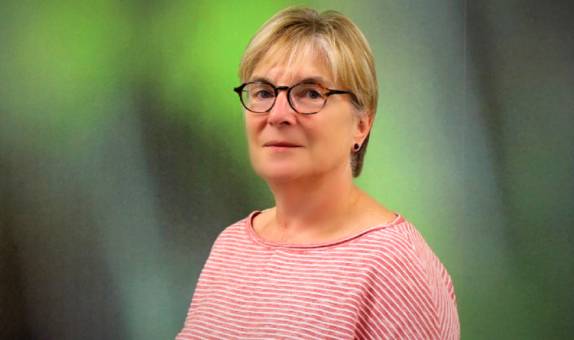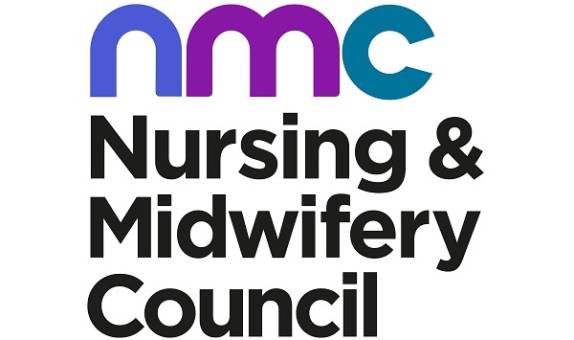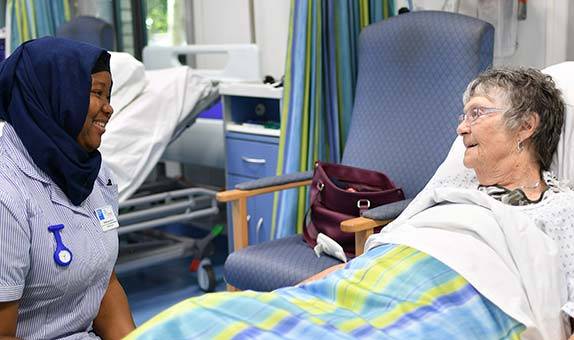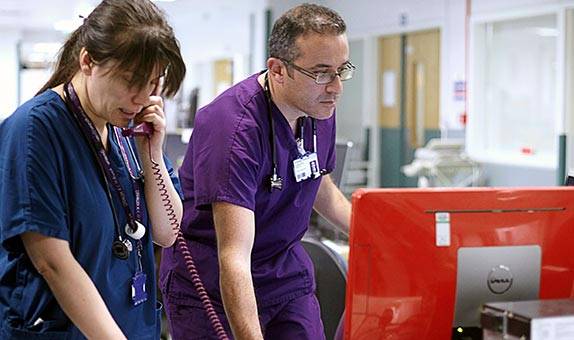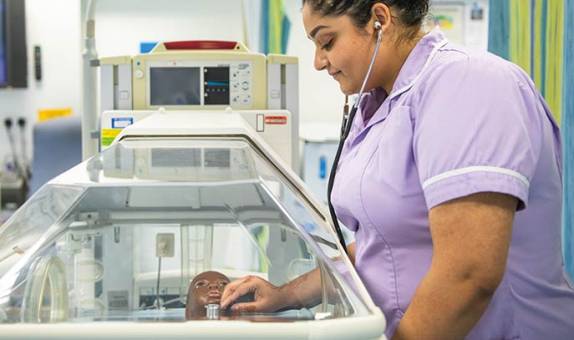Midwifery with Registered Midwife MMid
Why choose this course?
This three-year masters course has been designed for graduates who would like to gain the knowledge, skills and values necessary to register as midwives on the Nursing and Midwifery Council's (NMC) professional register. This is an NMC approved course.
At least 50% of learning is practice-based. You will work with midwives in hospitals and the community, caring for women and birthing people, and their families through pregnancy and birth and providing postnatal care.
You will be taught by experienced midwives, healthcare specialists and wider NHS experts. You will study a wide range of subjects that provide the scientific knowledge base for midwifery practice, such as maternal and neonatal physiology and care; health promotion and education; professional, ethical and legal issues; and research. You will be exposed to a variety of educational and practice settings and encouraged to view learning as a lifelong process. Reflection is emphasised throughout the course to enhance the integration of theory and practice.
NHS Training Grant
Nursing and Midwifery students on pre-registration courses from September 2020 will receive a payment of at least £5,000 a year which they will not need to pay back, subject to eligibility criteria. For more information please visit the NHS Business Service Authority.
Please note: This course is full for 2024 entry.
| UCAS code | Mode | Duration | Start date |
|---|---|---|---|
| 1A37 | Full time | 3 years | September 2025 |
Please note: This course is full for 2024 entry.
| Main location | Kingston Hill |
Reasons to choose Kingston University
- We are No.1 in London and No.7 in the UK for Midwifery (Guardian University Guide league tables 2024).
- You will be offered a wide range of clinical experience within local NHS Trusts and the surrounding community.
- We are committed to promoting diversity in midwifery, with a Professional Midwifery Advocate dedicated to anti-racism.
What you will study
You will study a wide range of subjects that provide the scientific knowledge base for midwifery practice, such as maternal and neonatal physiology and care; health promotion and education; professional, ethical and legal issues; and research. You will be exposed to a variety of educational and practice settings and encouraged to view learning as a lifelong process. Reflection is emphasised throughout the course to enhance the integration of theory and practice.
Year 1
Year 2
Year 3
In Year 1, you will be introduced to midwifery theory and practice focussing on birth as a physiological process.
Core modules
Bodies and Birth 1
30 credits
This module will introduce you to the biological basis which underpins the provision of midwifery care, including an introduction to pharmacology, genomics and genetics.
On successful completion of the module, students will be able to:
- demonstrate detailed knowledge of the normal anatomy and physiological processes of the human body
- identify and apply the concepts of epigenetics and genomics to promote wellbeing
- apply detailed knowledge of the physiological processes of fetal development, pregnancy, childbirth, lactation, fetal adaptation to extrauterine life and the puerperium to midwifery practice
- understand, analyse and apply the underlying concepts of pharmacology for safe and effective medicines management
Social and Political Context of Birth 1
30 credits
This module will introduce you to the socio-political influences shaping the changing context of maternity care provision. You will develop an understanding of feminist theory, psychology, sociology and public health as it applies to childbearing.
On successful completion of the module, students will be able to:
- analyse how psychological, emotional and social factors influence childbearing experiences for women and birthing people and their families
- identify and critically analyse the key public health issues of importance for childbearing women and birthing people and their families
- systematically analyse and evaluate local demographic data
- critically analyse the role of the midwife in supporting women and birthing people and their families through the childbearing process
Midwifery Profession and Practice 1A
30 credits
This module introduces you to the concepts of being a professional midwife. The contemporary role and scope of the midwife is identified and defined. The professional values and culture of midwifery will also be explored.
On successful completion of the module, you will be able to:
- synthesise the concepts of legal and ethical issues related to the midwifery profession and practice
- demonstrate a critical understanding of the importance of midwifery professional values when caring for childbearing women and birthing people and their families
- analyse your own capabilities in their role as student midwife, identifying personal attributes and areas of challenge and conflict
- systematically identify and critically analyse information from a variety of authoritative sources that inform midwifery practice
- utilise reflection to support academic and personal development for effective midwifery practice
Midwifery Profession and Practice 1B
30 credits
This module introduces midwifery professional practice. It identifies the role of the midwife and locates the responsibilities of the midwife within the scope of midwifery practice, providing universal care to women and birthing people and newborn infants. Professional behaviour, values and culture will also be explored.
On successful completion of the module, you will be able to:
- safely participate in the provision of universal care for woman and birthing people and their families across the childbearing continuum under close supervision and direction
- demonstrate the ability to use appropriate interpersonal skills when providing care for women and birthing people and their families, adapting to a range of situations accordingly
- demonstrate the appropriate professional behaviour and values when caring for childbearing women and birthing people
- recognise and de-escalate situations likely to lead to conflict
In Year 2, we build on your knowledge and skills gained in Year 1 and introduce the complexities that can occur during pregnancy for some mothers and birthing people and their babies.
Core modules
Bodies and Birth 2
30 credits
This module will enable you to develop a critical approach to the biological basis which underpins the provision of midwifery care and deepen your knowledge of anatomy, physiology, pharmacology, genomics and genetics. The module will introduce the concepts of the systematic examination of the newborn infant and the biological basis for additional care needs for women and birthing people and babies.
Social and Political Context of Birth 2
30 credits
This module builds on the knowledge acquired in Year 1 (or knowledge previously acquired) to develop your understanding of the impact of socio-political factors on childbearing women and birthing people and their families. You will systematically critically analyse a range of theories and concepts relating to public health, health promotion and adult education within the maternity care sphere. You will synthesise the knowledge you have gained, to develop innovative solutions, concepts or approaches to identified maternity-related public health issues.
Midwifery Profession and Practice 2A
30 credits
This module is designed to help you develop further as a midwife professional. Themes will include working with women and birthing people and their families with additional care needs, applying a detailed knowledge of normal physiology and pathology and collaborative working with other midwives and health and social care practitioners.
Midwifery Profession and Practice 2B
30 credits
This module is designed to build on your existing knowledge and skills to provide universal care for all women and birthing people and newborn infants, and additional care for women and newborn infants experiencing complexity and complications.
Year 3 continues to develop your midwifery knowledge, understanding and leadership skills, preparing you for autonomous practice as a midwife.
Core modules
Bodies and Birth 3
30 credits
This module will enable you to develop a deep and systematic understanding of the biological sciences that underpin the provision of safe and effective midwifery care. It will build on your knowledge of anatomy, physiology, pharmacology, genomics and genetics so that you can provide women and birthing people and their families with sexual and reproductive health and contraception information. The biological basis of actual and potential additional care needs for women and birthing people and their babies will be consolidated and the underlying theory for immediate emergency responses and first line management of complications will be introduced.
Social and Political Context of Birth 3
30 credits
This module builds on the knowledge previously acquired to prepare you for practice as a registered midwife within a global context. You will analyse the socio-political influences shaping the changing context of maternity services within the NHS, independent practice and from an international perspective. The variations in birth practices around the world will be evaluated and you will analyse a range of theories and concepts relating to human rights in childbirth; including the midwife's role in advocating for women and birthing people and their infants.
Midwifery Profession and Practice 3A
30 credits
This module is designed to prepare and support you in the transition from student to accountable, autonomous, analytical critical thinking practitioner. Themes will include working with women and birthing people and their families, other midwives and health & social care practitioners, professional regulation, organisation of maternity services, information seeking and critical appraisal.
Midwifery Profession and Practice 3B
30 credits
This module will further develop your ability to explore and analyse the current knowledge base and midwifery skills to provide universal care for all women and birthing people and newborn infants, and additional care for those experiencing complications.
Entry requirements
Teaching and assessment
Teaching includes academic study and clinical practice experience. You will have access to well-equipped skills laboratories and simulation suites where you can use clinical equipment and practise on mannequins and teaching models that are relevant to maternity care.
There is a continuous assessment of theory and practice. This includes extended essays, examinations, reflective journal writing and projects.
Who teaches this course?
You will be taught by leaders in the field who regularly contribute to research, particularly in the care of the mother or birthing person and child, before, during and after pregnancy. Our teaching has an extensive focus on practical skills development, in partnership with local NHS Trusts to ensure you are fully equipped and competent to practise.
Fees for this course
Additional costs
Depending on the programme of study, there may be extra costs that are not covered by tuition fees which students will need to consider when planning their studies. Tuition fees cover the cost of your teaching, assessment and operating University facilities such as the library, access to shared IT equipment and other support services. Accommodation and living costs are not included in our fees.
Where a course has additional expenses, we make every effort to highlight them. These may include optional field trips, materials (e.g. art, design, engineering), security checks such as DBS, uniforms, specialist clothing or professional memberships.
Facilities
Our Kingston Hill campus offers you modern facilities and includes well-equipped laboratories where you can practise within a safe environment. Our new simulation suite houses all the equipment needed to develop clinical practice skills.
This versatile space can be used for simulated home settings or a delivery suite setting. It also has a range of equipment, including a birthing pool, birthing mattresses, manikins, resuscitaires and exercise balls for you to learn with.
After you graduate
You will gain the knowledge and skills to register as a midwife on the NMC's professional register.
Registered midwives can choose to develop their skills and experience in the NHS, or the independent or voluntary sectors. Midwives can elect to work clinically, teach, undertake research or even manage a complete maternity service. Extensive postgraduate study opportunities are also available at Kingston University.
Career opportunities
Midwifery today is a highly attractive career with good financial rewards and excellent employment prospects in the UK and overseas.
The majority of midwives work in the NHS, either in the community working alongside GPs, district nurses and social workers, or in hospital environments in partnership with obstetricians, anaesthetists and neonatologists. Others work in private maternity hospitals or practice independently.
There are many practice-based roles and also management opportunities in both midwifery and general health care which can enable midwives to develop and support modern midwifery practice. Midwives may also take on consultant roles.
Teaching and mentoring
Qualified midwives can take further qualifications in teaching and mentoring to enable them to supervise and teach student midwives. There are also opportunities in higher education in a lecturer-practitioner role, which allow midwives to combine an interest in teaching with hands-on midwifery practice.
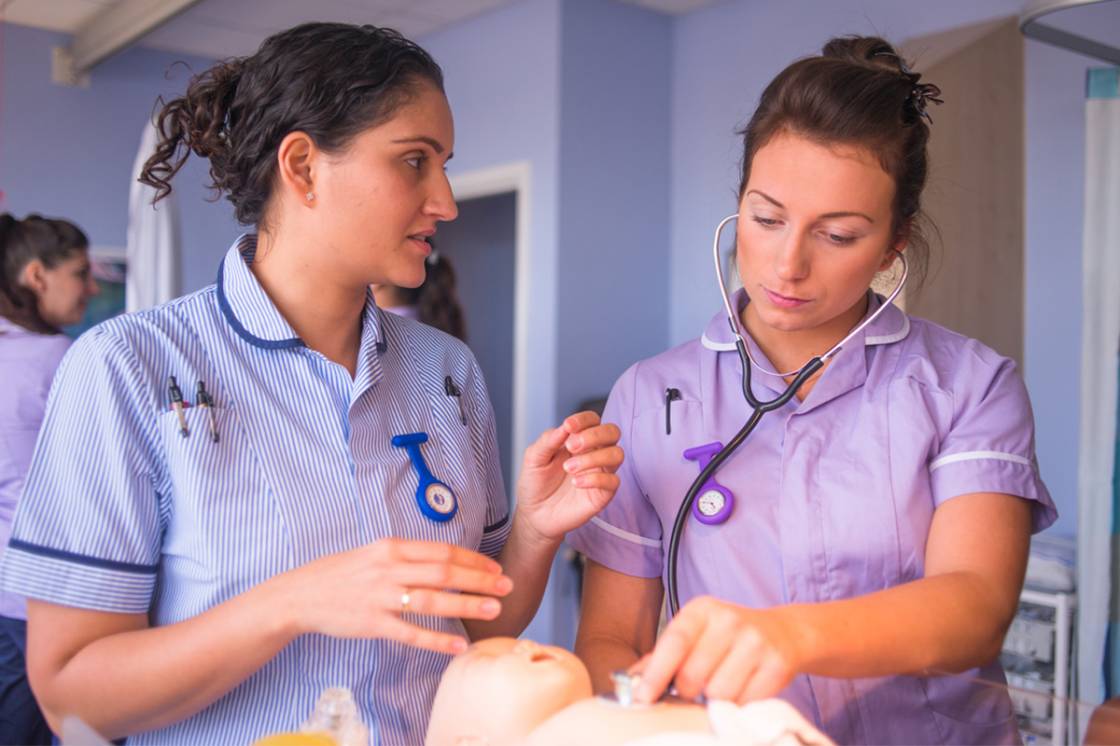
Accreditation
Recognised by the Nursing and Midwifery Council for the purpose of registration as a qualified midwife.
What our students say
Links with the health sector
You will do a range of placements in different settings, including hospitals, community settings and continuity of care. We have a range of practice partners for midwifery from the NHS including:
- Ashford and St. Peter's Hospitals NHS Foundation Trust
- Croydon Health Services NHS Trust
- Epsom and St Helier University Hospitals NHS Trust
- Kingston Hospital NHS Foundation Trust
- NHS Frimley Health Foundation Trust
- St George's University Hospitals NHS Foundation Trust
Current research in this subject
Many of our faculty staff are research active, often in partnership with NHS Trusts. This ensures they are in touch with the latest thinking and bring best practice to your studies.
Midwifery research activity focuses around several key areas:
- Clinical interventions
- Professional practice
- Women's experience of maternity care
- Public health
- International midwifery
We conduct much of our midwifery research and consultancy either in partnership with or on behalf of maternity services, voluntary sector and independent agencies.
Course changes and regulations
The information on this page reflects the currently intended course structure and module details. To improve your student experience and the quality of your degree, we may review and change the material information of this course. Course changes explained.
Programme Specifications for the course are published ahead of each academic year.
Regulations governing this course can be found on our website.
